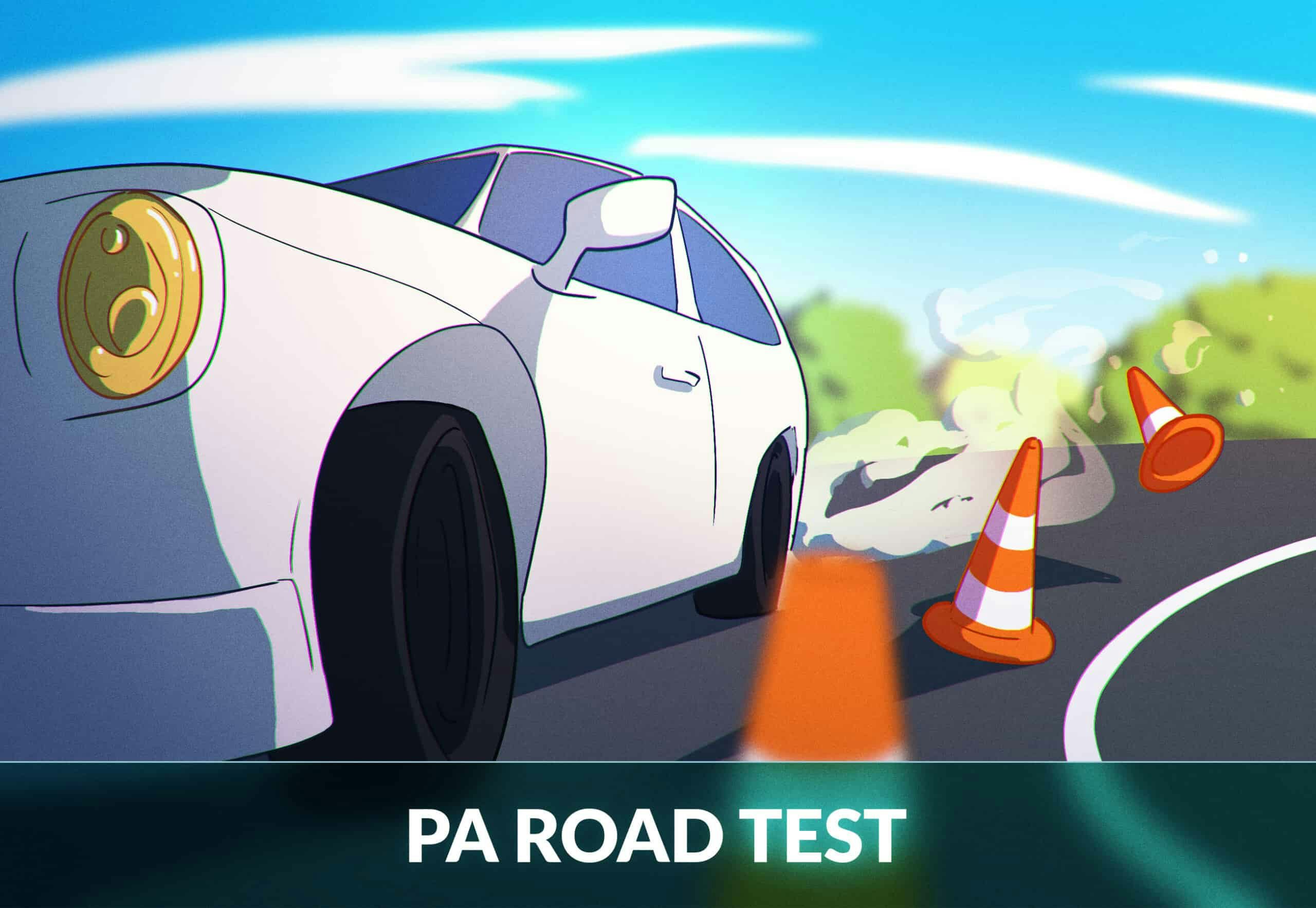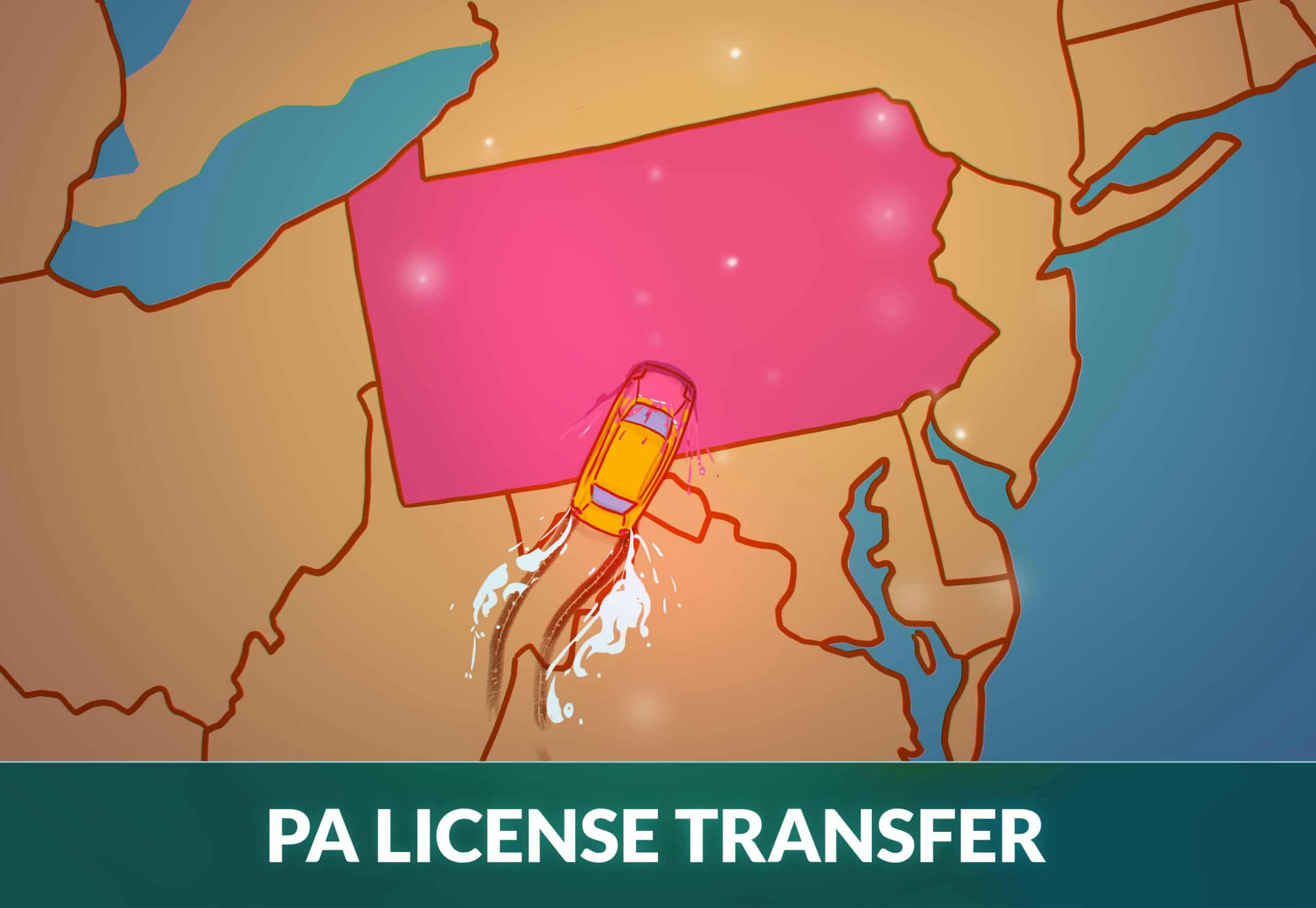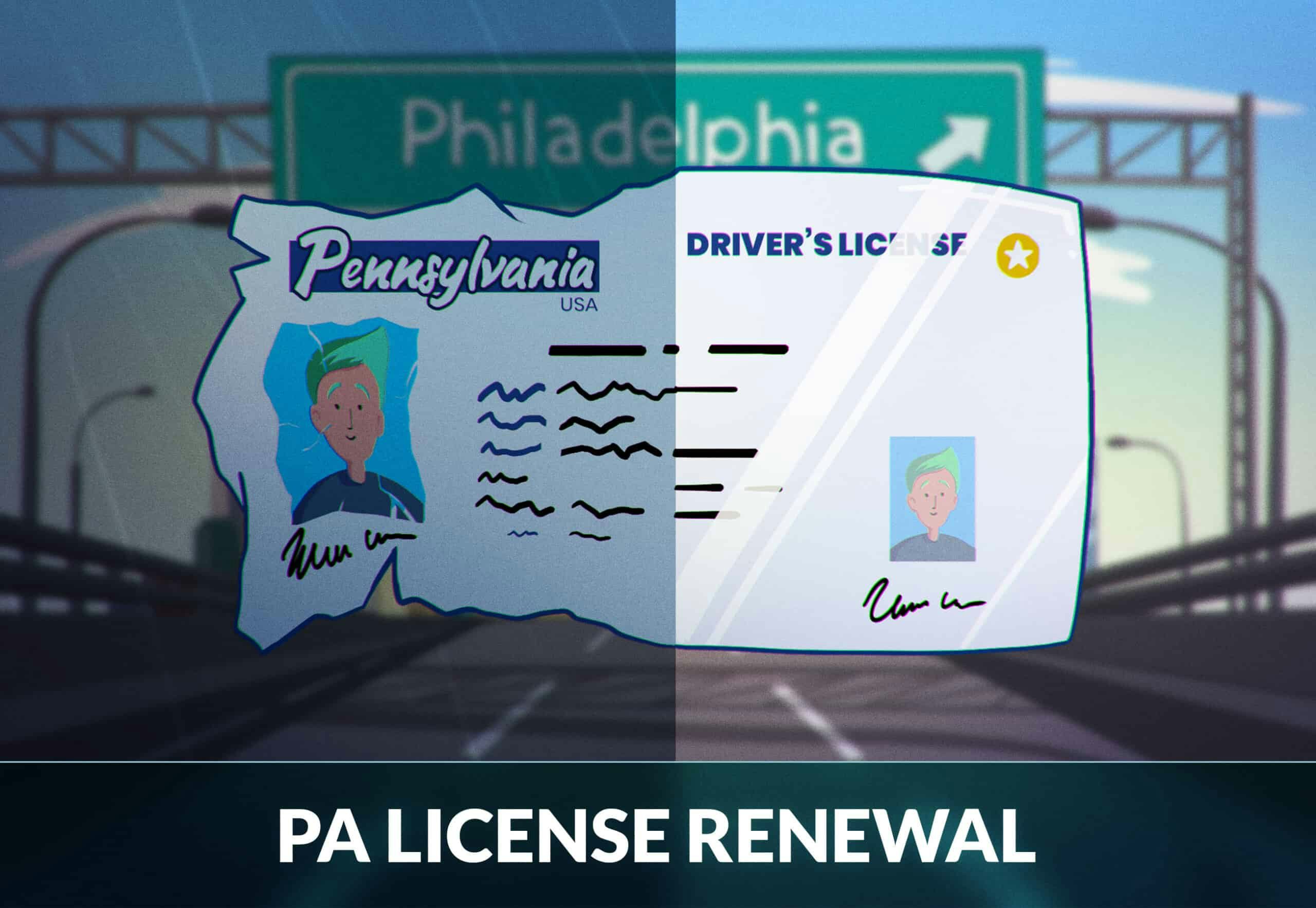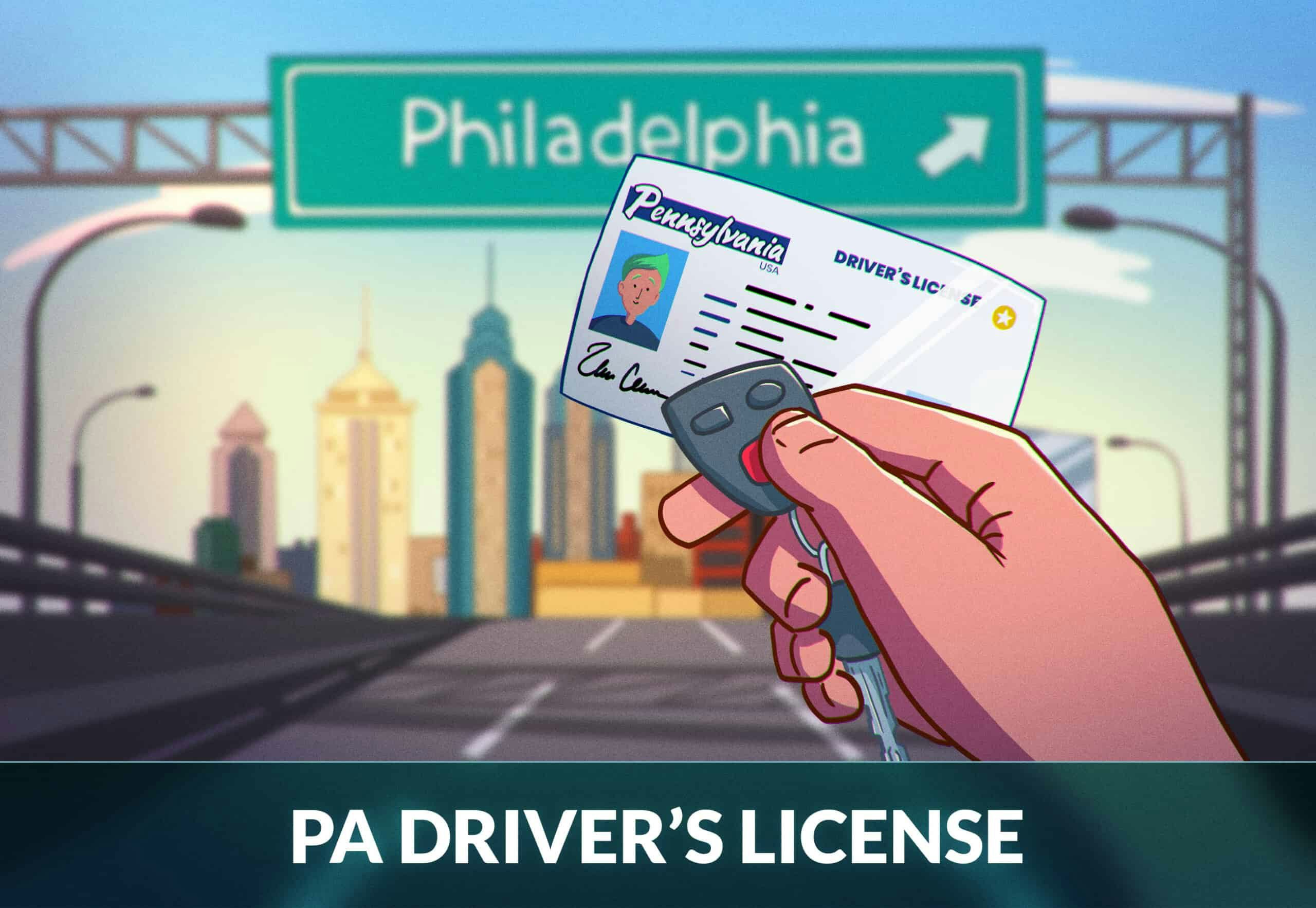
Passing the Pennsylvania Road Test: A Complete Guide
The Pennsylvania road test is the cause of much stress for many new drivers. Of course, it’s extremely important that you prepare properly to ensure a passing score on the road test, as it is one of the more difficult parts in the licensing process.
If you’re a bit confused about the best way to prepare, take a look at the tips below. In this guide, we will walk you through exactly what you should know to easily pass your road test in Pennsylvania.
Requirements for the Pennsylvania Road Test
The first thing you need to do is ask yourself if you’re ready to take the driving test. The State of Pennsylvania requires new drivers to complete a series of requirements before they are allowed to take their road test. Your testing vehicle must also satisfy certain requirements.
Driver Requirements
- Have a physical examination completed, and get the relevant section of your permit application filled out.
- You can then get a learner’s permit if you’re at least 16 years old. Head to a DMV with your application and the correct identification and residency documents. There, if you pass your vision and knowledge tests, you’ll get your permit.
- Over a six-month period, practice driving for at least 65 hours.
The PennDOT will allow you to take your driving test after you’ve held your permit for six months and practiced for the correct amount of time. However, don’t feel pressured to take the test then; if you don’t feel ready, go ahead and practice as much as you’d like.
Vehicle Requirements
Unlike some states, the Pennsylvania road test is taken in your own vehicle, so you’ll want to make sure that it qualifies as a road testing vehicle. A vehicle that doesn’t meet state standards, either because of safety defects or because you don’t have the correct documents, can cause you to be denied even taking the test.
Remember to bring:
- A valid registration card for your vehicle.
- Proof of current vehicle insurance.
- Valid state inspection sticker.
- Valid emissions sticker if required.
It is also important to make sure that your vehicle is functioning properly. If any of the following is defective, you will not be allowed to take your road test.
- Your lights–brake lights, headlights, taillights, and turn signals–must all be working.
- Brakes must work well.
- Your car horn should function correctly.
- Your windshield wipers should work.
- Mirrors should function well.
- Seats should be properly anchored, and safety belts must be usable.
- Doors must function properly.
- Tires must be in good condition.
How to Schedule Your Pennsylvania Driving Test
If you’ve completed the requirements, you’re all set to take your driving test! You can schedule an appointment at a PennDOT location either by phone or online. You may also choose to schedule your appointment at a third-party testing business as long as it is authorized by Pennsylvania.
The Pennsylvania Road Test
Finally – the day of your road test is here! In this section, we’ll go through everything you need to know on the day of the test and what to expect.
What Should You Bring to PennDOT?
It’s definitely a good idea to know what you should bring before the day of your test. Collect these documents ahead of time so that taking your test is as stress-free as possible. If you do not have the following documents, you will need to reschedule your Pennsylvania road test.
- Learner’s permit.
- If you’re a minor, you’ll need a completed Parent/Guardian Certification Form.
- You’ll need proof of vehicle insurance and registration for the vehicle you intend to use for the road test.
- The driver who is accompanying you to the testing office must bring their valid driver’s license.
What Does The Pre-Test Consist Of?
Your examiner will ensure that you have all the correct documents and that your vehicle is working well. Then, before you start driving along the testing route, your examiner may ask you to perform certain maneuvers and demonstrate that you know how to properly operate the controls in your vehicle.
You may be asked to use your car horn, your windshield wipers, your parking/emergency brake, your hazard lights, your defroster, etc. You may also have to show that you know how to correctly operate your vehicle’s lights, including your parking lights and your high and low beam headlights.
You will also be asked to parallel park during this part of your test.
What Maneuvers are Tested on the Pennsylvania Road Test?
After you’ve completed the pre-test, you’ll begin the actual on-the-road section of the road test. This will take place either on a set testing route on public roads, or on a designated testing area.
Your examiner will observe your overall driving skills–how well you obey traffic signs, signals, and lights, if you communicate well with other drivers, and if you control your vehicle smoothly and properly.
It’s especially important to stay calm and focused during this part of the exam. If you’ve prepared properly, a safe driving technique should be habitual and you should have no problem passing your test.
If you fail at any point in the road test, you won’t be allowed to complete the remainder of the test. This includes the pre-test portion of your exam.
Due to COVID-19, Pennsylvania has slightly modified the way road tests are conducted. Rather than riding in your vehicle’s passenger seat, examiners will remain outside of the vehicle, observing driving skills and giving instructions from there. You’ll need your accompanying licensed adult to ride in your front passenger’s seat. Masks are required for everyone.
We teach safe and confident drivers for life
- Meets all DMV requirements
- Free pick-up and drop-off near you
- Personalized lessons for teens, adults, and seniors
- Modern cars with all the safety features

What Will Cause You To Fail Your Road Test?
You probably don’t like to think about failing your road test, but you should know what causes a failure so that you can avoid it.
- You are unable to correctly use a control in your vehicle.
- You cause a crash.
- You drive dangerously.
- You don’t obey traffic laws, such as stop signs or speed limits.
- You don’t follow your examiner’s instructions.
- You don’t use your turn signals.
What Happens if You Fail?
In Pennsylvania, you’ll have to wait seven days before you can retake the road test if you fail.
That’s It!
That’s everything you need to know about passing the Pennsylvania driving test. We hope this guide has helped you out, and that you now feel comfortable with the steps moving forward. If you need any help studying for your upcoming exams, then Zutobi is the perfect study guide with online practice tests, a summarized handbook, and practical driving tips that will help you immensely during the actual road exam.

Avoid beginner mistakes with expert advice
Build road test confidence and reduce anxiety
Make at-home lessons a success with our parent guide
Recommended articles
Country
Ace your DMV test, guaranteed


